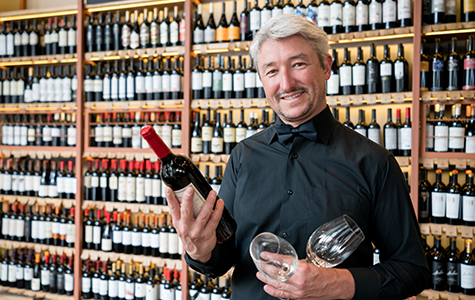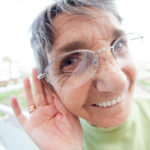 Can the Adult Brain Grow?
Can the Adult Brain Grow?
Have you ever heard that once you get to adulthood, your brain cells start dying off and it’s downhill from there? That used to be the way we thought about brain health but, in the last couple decades, we’ve learned that some people do show positive brain changes, called neuroplasticity, even into adulthood.
The most famous study documenting this fact was of taxi drivers in London — experts in navigation and spatial memory — who have bigger memory structures in their brains as compared to other Londoners. Fascinating, but what about the surrounding areas: the smell and memory regions of the brain, which are the first to be affected in Alzheimer’s and Parkinson’s disease? Can those areas change for the better even in adults?
This is the question our research team at Cleveland Clinic Lou Ruvo Center for Brain Health wanted to answer, but first the team had to find study subjects with reason to change that specific area of the brain as adults. In other words, who needs to become an expert in smell and memory? Answer: sommeliers.
The Nose Knows
In fine dining restaurants, sommeliers help us choose wine and pair it with our meals. Master sommeliers at the top of their field spend years learning about the geography, chemistry, history, legalities — all, of course, paired with the smells — of particular wines. These students pass a rigorous, four-step exam process, including blind tasting, which draws on the wealth of memories they have built up in association with particular odors.
There are only 230 master sommeliers worldwide; with 13, Las Vegas has the largest number of any city in the United States. Thirteen master sommeliers enrolled in our study, in which we used MRI to assess both the sizes of various parts of their brains and brain activation during a smelling task.
The results were amazing: Not only did sommeliers have larger brain regions important in smell and memory, but the more experienced sommeliers had the largest differences. Their brains were also much more active and interconnected during smell than during other sensory tasks.
What Does This Mean?
These results are exciting because they suggest that the most vulnerable of brain regions show neuroplasticity during adulthood, which may represent a mechanism for future interventions and provide evidence for why we should stay active and keep learning throughout our lifespans.
For more information on innovative research being conducted at the Lou Ruvo Center for Brain Health, visit https://healthybrains.org/clinical-trials/ or clevelandclinic.org/BrainHealthTrials.









